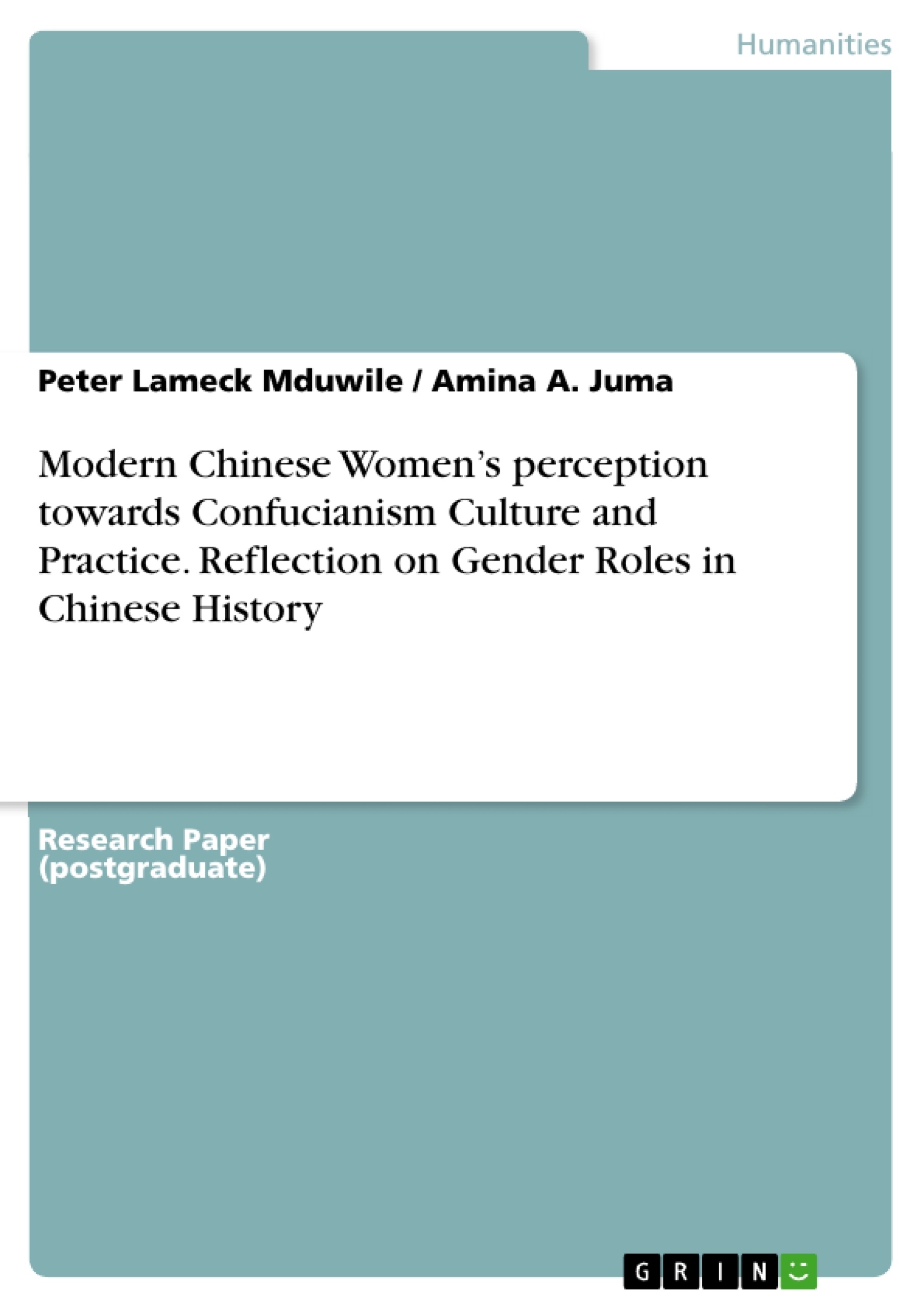In many societies, women’s primary roles revolved around motherhood and managing a household. While women in many different places and at different times had this in common, there were significant differences in how women performed these roles depending on kinship relations. Confucianism Culture and practices sort attitudes toward women, common in the society. This paper examines the modern Chinese Women’s perception of Confucianism Culture and Practice in reflecting the gender roles in China History. This study uses a qualitative approach where the design methods used was to combine the library research by reviewing various literature and documentations through collecting data-related research results.
Table of Contents
- I. INTRODUCTION
- The Confucianism culture and practice in China has a long history.
- II. RESEARCH QUESTIONS
- III. LITERATURE REVIEW
- 2.1. Theoretical Review
- 2.2 Women's life in China History
- III. RESEARCH METHODOLOGY
- IV. RESULTS AND DISCUSSION
Objectives and Key Themes
This study investigates modern Chinese women's perceptions of Confucianism Culture and its influence on gender roles throughout Chinese history. The research aims to understand how modern Chinese women view and feel about Confucian cultural practices in contemporary society and how these practices shape their positions within society.
- The historical impact of Confucianism on gender roles in China
- Modern Chinese women's perceptions of Confucianism as oppressive or empowering
- The influence of Confucianism on women's status, education, and leadership opportunities
- The role of feminist theory in understanding the experiences of Chinese women
- The evolution of gender roles in China in the context of social and cultural change
Chapter Summaries
- I. INTRODUCTION: This chapter introduces Confucianism as a way of life deeply embedded in Chinese culture. It highlights the historical context of Confucianism's influence on gender roles and its impact on women's status in society.
- II. RESEARCH QUESTIONS: This chapter outlines the research questions guiding the study, focusing on modern Chinese women's perceptions of Confucianism and their positions in contemporary society.
- III. LITERATURE REVIEW: This chapter presents a theoretical review of feminist theory and its relevance to understanding the experiences of Chinese women. It also examines the historical context of women's lives in China, highlighting Confucian practices and their impact on women's social and political status.
- III. RESEARCH METHODOLOGY: This chapter outlines the qualitative research methodology used in the study, emphasizing the use of library research and secondary data analysis. The chapter explains the specific methods employed to collect and analyze data.
Keywords
The key themes and concepts explored in this study include perception, culture, Confucianism, gender, practice, women's empowerment, social change, feminist theory, and the historical evolution of gender roles in China.
- Quote paper
- Peter Lameck Mduwile (Author), Amina A. Juma (Author), 2021, Modern Chinese Women’s perception towards Confucianism Culture and Practice. Reflection on Gender Roles in Chinese History, Munich, GRIN Verlag, https://www.grin.com/document/1291170




